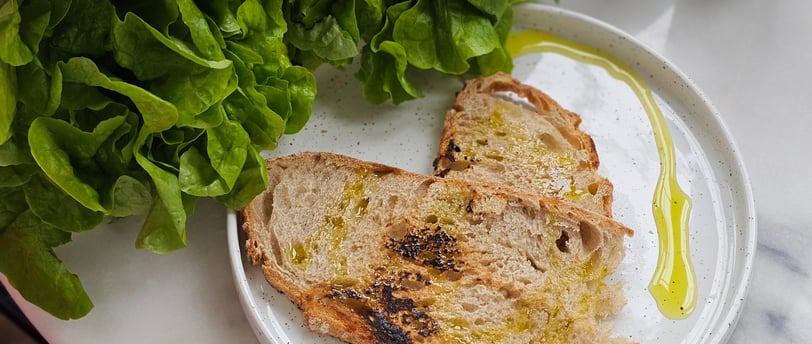What Are Polyphenols?
HEALTH BENEFITS RELATED TO EVOO
2 min read


Introduction:
In the world of nutrition, the spotlight is often on compounds that contribute to overall well-being. One such group of natural wonders is polyphenols – bioactive compounds found in abundance in various plant-based foods. In this article, we delve into the fascinating realm of polyphenols, exploring their health benefits and shedding light on which olive varieties reign supreme in the polyphenol department.
Understanding Polyphenols: The Health Guardians
Polyphenols are a diverse group of phytochemicals with potent antioxidant properties. These compounds, found in fruits, vegetables, tea, and extra virgin olive oil, play a crucial role in plant defense mechanisms. However, their benefits extend far beyond protecting plants; they also offer a myriad of health advantages for those who consume them.
1. Antioxidant Powerhouses:
- Polyphenols act as antioxidants, neutralizing harmful free radicals that can cause cellular damage. This antioxidant prowess contributes to reducing oxidative stress in the body, a key factor in preventing chronic diseases.
2. Anti-Inflammatory Allies:
- Many polyphenols exhibit anti-inflammatory effects, helping to quell inflammation in the body. Chronic inflammation is linked to conditions such as heart disease, diabetes, and neurodegenerative disorders.
3. Cardiovascular Champions:
- Certain polyphenols, especially flavonoids found in foods like berries and dark chocolate, are associated with cardiovascular benefits. They may improve cholesterol levels, support blood vessel health, and contribute to overall heart health.
4. Cancer-Preventive Agents:
- Research suggests that polyphenols may have cancer-preventive properties. Their ability to inhibit the growth of cancer cells and reduce the risk of certain cancers underscores their potential role in maintaining cellular health.
5. Neuroprotective Guardians:
- Neuroprotective effects of polyphenols, particularly those found in green tea and berries, may contribute to cognitive health. These compounds have shown promise in reducing the risk of neurodegenerative diseases such as Alzheimer's.
Olive Varieties and Polyphenol Rankings:
Among the treasure trove of polyphenol-rich foods, extra virgin olive oil stands out as a remarkable source. The polyphenol content in olive oil can vary based on factors such as olive variety, ripeness at harvest, and production methods. Here's a glimpse into the polyphenol rankings of some olive varieties:
1. Koroneiki: The Polyphenol Powerhouse
- Hailing from Greece, the Koroneiki olive variety often takes the lead in polyphenol content. Its robust, peppery flavor is accompanied by a high concentration of antioxidants, making it a preferred choice for those seeking health benefits.
2. Picual: The Stable Contender
- The Picual olive, prominent in Spain, boasts a stable flavour profile and a high polyphenol content. Known for its spicy and fruity notes, Picual olive oil is rich in antioxidants, contributing to its resilience during cooking and long shelf life.
3. Arbequina: A Catalan Gem
- The Arbequina olive, a Catalan variety, may have a milder flavour, but its polyphenol content should not be underestimated. While it is less stable than some counterparts, it brings a fruity complexity to the table and offers healthful antioxidants.
Conclusion: The Polyphenol Symphony in Olive Oils
In the journey toward holistic well-being, embracing the benefits of polyphenols becomes a culinary adventure. Extra virgin olive oil, with its diverse array of olive varieties, emerges as a key player in this symphony of health. Whether you favor the robust notes of Koroneiki, the stability of Picual, or the fruity allure of Arbequina, each olive variety contributes to the polyphenol richness that can elevate your health and delight your taste buds. So, let the polyphenol journey begin, and savour the goodness that nature's pharmacy has to offer in every drop of extra virgin olive oil.
